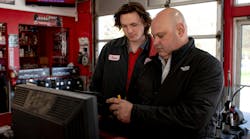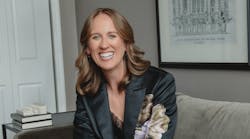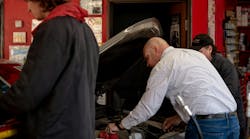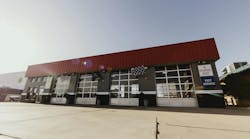Life-changing words were uttered during a conversation many years ago, as I started my time with a small company called Rapid Oil Change. The company was just starting their ramp-up to greatness. While young, there were many great leaders from the top-down that were being assembled and put in positions to expand the legacy-in-the-making. These words were spoken and repeated time and time again throughout their success: “It’s about changing people, not oil.” Mr. Monty, the majority shareholder, looked at our group and said we could do anything. To prove this, we were tasked with coming up with ideas on what else we could do. Although I completely get the exercise now, the room was filled with quick lube ideas. The true idea is to realize that we were not an oil change company — we were a company that achieved great things by developing great people. It just so happened the thing that was done great, was changing oil. But it’s not about changing oil; it’s about changing people.
I remember this phrase so well, as it was the first time that I turned my attention away from procedures and toward legacy. Most of us started out as technicians and worked our way up through the chain, burning our forearms on a Honda flex pipe while fuming up the service bay with the distinct smell flowing out of the tail pipe from that two-step. We prided ourselves on the hard work, or some call it, “blood, sweat and tears” — although I only cried when I jammed my fingers in the pit grates. It’s so hard to realize that as a manager, you are not paid on your quantity of work (as such the early contributors do) but rather on your quality of work. To increase your wallet, you must develop not only a training program that is solid but also adopt the idea that it is not about changing oil; it’s changing people. This is a cultural pulse that must exist to expand your team, company portfolio or your personal legacy.
Start Out Your Team Right
Simon Sinek is a well published business and leadership guru that I highly recommend reading, listening to and catching any video cast you can find on him. One of his famous books “Start with Why” poses a simple statement: “People don’t buy what you do, but why you do it.” Go back and read that again. This is not only important in selling to your customer, but also selling to your employees. And yes, you must sell your employees on your business (rough thought, I know).I can see the chests poking out right now and shaming me for giving the employee so much power of your business. In the current culture, employees will buy into what you are doing more because they believe in it. When they believe in and truly understand why something is done, they are extremely valuable to your team and your wallet. Throwing money at them and saying, “Do this or pound sand,” will only produce workers. Workers clock in and do a task until they clock out. You have stared at that tech, wondering where he went wrong in is his life. Did his momma not teach him? Did his daddy paint his room with lead paint? Just think for a minute. Is it him, or your leadership? Gut check.
Employees should know from the beginning that they are here to learn, refine their skills and take their team to greatness. Think about someone who stuck by you and didn’t fire you because you didn’t do something right the first time. Mine is Pete Frey. To some, I was their Pete Frey. The compassion that was given to me was a valuable lesson on people changing. There were so many times that I could have been fired for my stupid failures I blessed the company with. There were times that I called on him to terminate someone for not doing the right thing right away. He refused; he taught; he made them and me understand; and he changed them. In doing that, he changed me. He shared his opinion enough for you to want to change yours. He took time to make personal connections with you. Good times and bad, he attended the weddings or the funerals. If you walked into his office with a problem (personal or professional), he would listen, coach and pray — even if you were not a believer. May you all have a Pete Frey in your careers and learn to be a little more like him. (Happy retirement, boss!)
What Business Are We In?
To start off a management class, particularly new recruits, I would ask them the simple question: “What business are you in?” The normal answer of “quick lube” was expected, and some would blurt this out quickly and proudly. Some would just sit back and ponder on the seemingly trick question. You would get mildly inventive phrases: automotive aftermarket, retail and the ever-clever customer service.These are the norm of future leaders who view their careers as procedures. And why not? Fitting inside procedures and exceling is how most of them got to the table. Leaders who started at the bottom of the organizational structure were given a set of directions, commands and tangible goals to meet. Being that a quick lube technician may have only had this job or some other procedure-based job, they are not used to asserting their talents and growing their strengths. They were told to do “x” to receive “y,” and they did it — most of the time.
But in our business, we must change people. We change our customers to adapt better maintenance practices, to only go to you and to get off their phone when you are performing a service review. We must teach them that there are many different places to maintain their vehicle, but your team will not only do it better than the rest; they will also perform to the best of their abilities. To do this we must change our employees to not look at this as a J.O.B., but as an opportunity for them to learn and grow. We must teach them there are certain procedures that are written in stone and some that were written with the understanding that they don’t necessarily adhere to every customer. Each employee you bring on to serve has the unique ability to sway your shop’s morale, car count and ticket average. As soon as you truly realize this and respect the power of your individual team members, you will be ready to start developing your training program.





